Bem-vindo ao meu blog!
Antes de mergulharmos no conteúdo, adoraria que você se juntasse a mim nas minhas plataformas de mídia social, onde compartilho mais insights, interajo com a comunidade e posto atualizações. Veja como você pode se conectar comigo:
Facebook: https://www.facebook.com/profile.php?id=100072217509763
LinkedIn: https://www.linkedin.com/company/74949059/admin/dashboard/
YouTube:www.youtube.com/@tractormanufacturer-lc5qz,www.youtube.com/@excavatormanufacturers-sn9hk
TikTok: www.tiktok.com/@tractormanufacturer, www.tiktok.com/@excavatormanufacturers
Agora, vamos começar nossa jornada juntos. Espero que você ache o conteúdo aqui perspicaz, envolvente e valioso.
Os dentes da escavadeira desempenham um papel crítico para garantir o desempenho, a eficiência e a durabilidade da sua escavadeira. Selecionar os dentes de escavadeira certos para o seu trabalho específico é essencial para obter resultados ideais e minimizar o desgaste. Neste guia abrangente, exploraremos tudo o que você precisa saber sobre a escolha dos dentes de escavadeira certos para o seu trabalho, incluindo considerações importantes, diferentes tipos de dentes e dicas práticas para maximizar sua vida útil.
Índice
- Introdução
- Importância de escolher os dentes corretos da escavadeira
- Fatores a considerar ao selecionar dentes de escavadeira
- H3: Material dos dentes da escavadeira
- H3: Tipo de trabalho e condições do solo
- Tipos de dentes de escavadeira e suas aplicações
- H3: Dentes de escavadeira de uso geral
- H3: Dentes de rocha para escavadeiras
- H3: Dentes de Tigre para Escavadeiras
- Tamanho e compatibilidade dos dentes da escavadeira
- Tabela: Guia de seleção de dentes de escavadeira com base no tipo de solo e trabalho
- Como prolongar a vida útil dos dentes da sua escavadeira
- Conclusão
- Perguntas frequentes
Introdução
Escavadeiras são máquinas potentes utilizadas na construção civil, mineração, paisagismo e diversos outros setores. Um dos componentes mais importantes de uma escavadeira são seus dentes. Os dentes corretos podem aumentar significativamente a produtividade, a eficiência da escavação e a longevidade da máquina. No entanto, com tantas opções disponíveis, selecionar o tipo certo de dentes de escavadeira para um trabalho específico pode ser uma tarefa complexa.
Este artigo fornece um guia detalhado para ajudar você a fazer a escolha certa quando se trata de dentes de escavadeira, garantindo que você obtenha o melhor desempenho e valor para seu investimento.
Importância de escolher o caminho certo Dentes de escavadeira
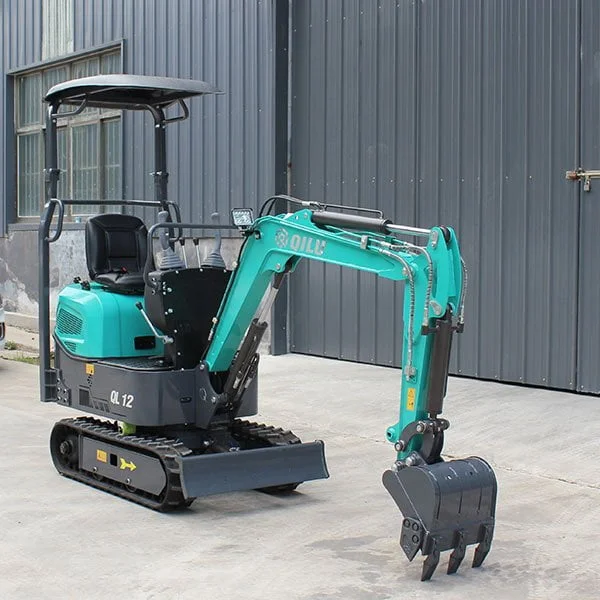
Escolhendo o correto dentes de escavadeira impacta múltiplos fatores, incluindo:
- Desempenho: Os dentes certos melhoram o poder de corte e reduzem a resistência ao cavar em vários materiais.
- Durabilidade: Dentes adequadamente selecionados são menos propensos a desgaste, quebra ou embotamento, reduzindo a frequência de substituições.
- Custo-benefício: Usar dentes errados pode resultar em custos operacionais mais altos, seja pelo aumento do consumo de combustível ou por substituições mais frequentes.
Investir tempo na seleção dos dentes de escavadeira apropriados é crucial para a eficiência do seu local de trabalho.
Fatores a considerar ao selecionar Dentes de escavadeira
Ao escolher os dentes da escavadeira, vários fatores devem ser considerados para garantir que sejam adequados para a tarefa em questão. Esses fatores incluem o material, o tipo de trabalho e as condições do solo. Vamos nos aprofundar nesses aspectos.
Material dos dentes da escavadeira
Os dentes das escavadeiras são feitos de diferentes materiais, cada um oferecendo diferentes níveis de durabilidade, flexibilidade e desempenho. Os materiais mais comuns incluem:
- Aço carbono:Mais adequado para tarefas gerais, mas propenso a desgaste em condições mais difíceis.
- Liga de aço: Oferece maior resistência e tenacidade, tornando-o ideal para tarefas mais exigentes.
- Aço Cromo-Molibdênio: Conhecido por sua extrema dureza, este material é perfeito para escavar materiais rochosos e abrasivos.
A escolha do material está diretamente ligada ao trabalho e ao tipo de material que você precisa escavar.
Tipo de trabalho e condições do solo
O tipo de trabalho e o material a ser escavado são os fatores mais críticos na escolha dos dentes da escavadeira. As condições comuns do solo incluem:
- Solo macio ou argiloso: Requer dentes com perfil largo para proporcionar escavação eficiente sem obstrução.
- Terreno duro e rochoso: Requer dentes robustos e afiados, projetados para cortar rochas e outros materiais abrasivos.
- Solo congelado ou asfalto: Precisa de dentes endurecidos para suportar o impacto e o desgaste causados pela quebra de superfícies duras.
Tipos de dentes de escavadeira e suas aplicações
Diferentes tipos de dentes de escavadeira são projetados para aplicações específicas. Entender as diversas opções disponíveis ajudará você a tomar uma decisão mais informada.
Dentes de escavadeira de uso geral
Os dentes de escavadeiras de uso geral são projetados para versatilidade. Eles funcionam bem em solos macios a moderadamente densos e são ideais para tarefas cotidianas como escavação, abertura de valas e carregamento. Esses dentes geralmente são feitos de aço carbono e apresentam um design mais largo para maximizar o contato com o solo.
Aplicações:
- Abertura de valas em solo solto ou argiloso
- Carregando material em caminhões
- Tarefas gerais de escavação
Dentes de rocha para escavadeiras
Dentes para rocha são dentes de escavadeira especializados, projetados para materiais resistentes e abrasivos, como rocha, cascalho e argila. Esses dentes são mais afiados e robustos do que os dentes de uso geral, geralmente feitos de aço-liga ou outros materiais de alta resistência.
Aplicações:
- Rompendo rochas e pedregulhos
- Escavação em pedreiras de cascalho
- Cavando em solo argiloso
Dentes de Tigre para Escavadeiras
Os dentes de tigre têm um design agressivo, com pontas afiadas e pontiagudas, perfeitas para penetrar em terra compactada, solo congelado ou argila compactada. Esses dentes de escavadeira também são eficazes em tarefas de demolição devido à sua capacidade de cortar materiais resistentes.
Aplicações:
- Escavação de solo congelado
- Tarefas de demolição
- Quebrando solo compactado
Dentes de escavadeira Tamanho e compatibilidade
-
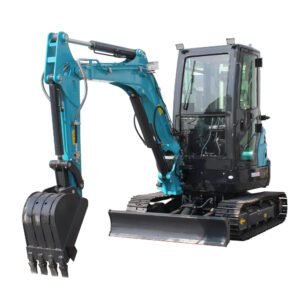 Escavadeira 3.5T
Escavadeira 3.5T -
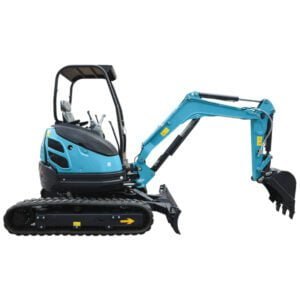 Fabricante personalizado de escavadeira 2.5T
Fabricante personalizado de escavadeira 2.5T -
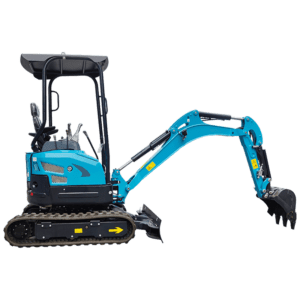 Fabricante de miniescavadeira 2.0T personalizada
Fabricante de miniescavadeira 2.0T personalizada -
 Fábrica de miniescavadeira 1.7T na China
Fábrica de miniescavadeira 1.7T na China -
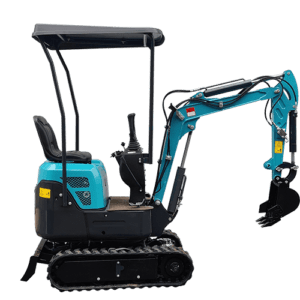 Fabricante de miniescavadeira chinesa 1.0T
Fabricante de miniescavadeira chinesa 1.0T -
 Empresa de miniescavadeira 2.5T sob medida
Empresa de miniescavadeira 2.5T sob medida -
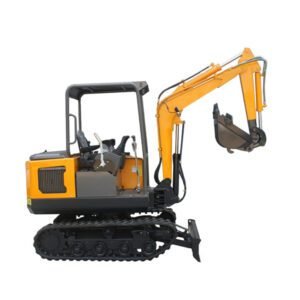 Empresa de miniescavadeira Odm 2.0T
Empresa de miniescavadeira Odm 2.0T -
 Empresa de miniescavadeira 1.2T da China
Empresa de miniescavadeira 1.2T da China
Um aspecto essencial ao selecionar os dentes da escavadeira é garantir que eles tenham o tamanho certo e sejam compatíveis com a sua máquina. Cada modelo de escavadeira pode ter tamanhos de dentes específicos, por isso é importante consultar o manual do seu equipamento para obter orientações.
Os dentes devem se encaixar firmemente na caçamba para garantir o desempenho ideal da escavação. Dentes soltos ou mal encaixados podem causar problemas operacionais, reduzir a eficiência e até mesmo danificar a caçamba da escavadeira.
Dentes de escavadeira Guia de seleção com base no tipo de solo e no trabalho
Para simplificar sua decisão, a tabela abaixo fornece um guia rápido para escolher os dentes corretos da escavadeira com base no tipo de solo e nos requisitos do trabalho.
| Tipo de solo | Tipo de dente recomendado | Material Ideal | Tipo de trabalho |
|---|---|---|---|
| Solo macio/argiloso | Dentes de uso geral | Aço carbono | Abertura de valas, escavação |
| Terreno duro/rochoso | Dentes de rocha | Liga de aço | Quebra de rochas, extração de pedreiras |
| Solo congelado | Dentes de Tigre | Cromo-Molibdênio | Escavação de solo congelado |
| Asfalto/Concreto | Dentes afiados de cinzel | Liga de alta resistência | Demolição, Obras Rodoviárias |
| Solo argiloso/compactado | Dentes de Tigre | Liga de alta resistência | Penetração compacta do solo |
Esta tabela ajuda você a identificar rapidamente o melhor dentes de escavadeira para suas necessidades específicas com base no trabalho e no tipo de solo.
Como prolongar a vida útil dos dentes da sua escavadeira
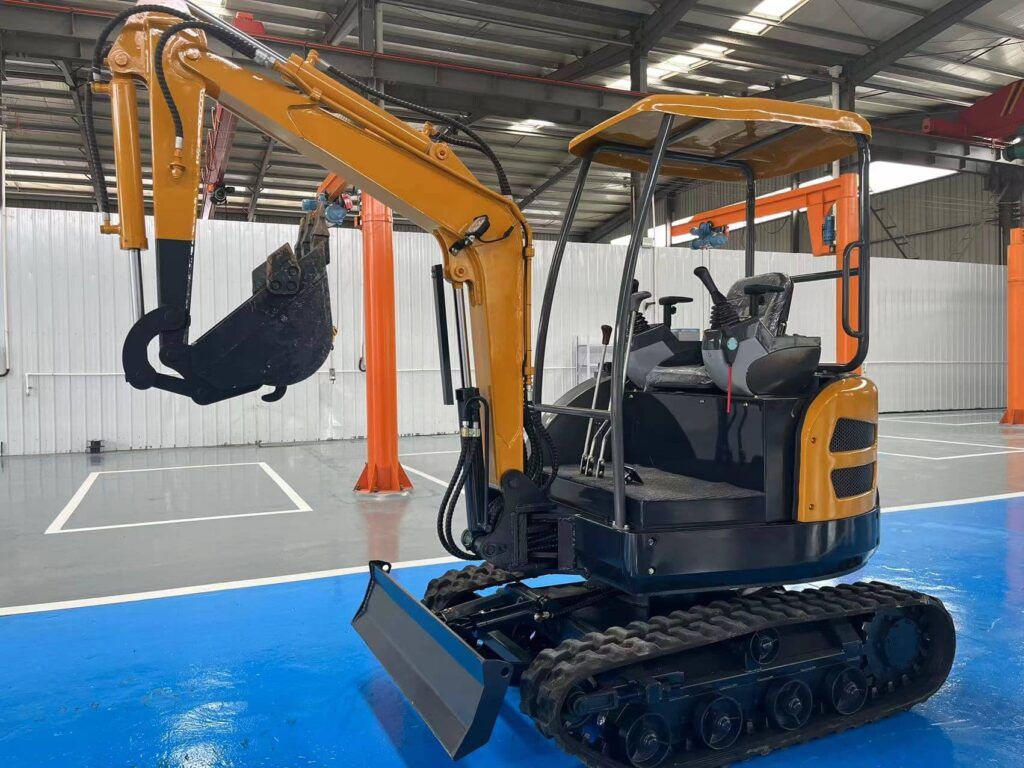
A vida útil dos dentes da escavadeira depende de quão bem eles são conservados e utilizados. Aqui estão algumas dicas para prolongar a vida útil dos dentes da sua escavadeira:
- Ajuste adequado: Certifique-se de que os dentes estejam firmemente presos à caçamba. Dentes soltos se desgastam mais rapidamente e podem danificar outras peças da escavadeira.
- Inspeção Regular: Verifique frequentemente os dentes quanto a desgaste, rachaduras ou sinais de danos. Substitua imediatamente quaisquer dentes desgastados para evitar comprometer o desempenho.
- Uso corretoEvite usar dentes de uso geral para trabalhos com pedras pesadas. Usar os dentes errados para o trabalho acelera o desgaste.
- Afiação:Se os dentes da sua escavadeira ficarem cegos, afie-os para restaurar a eficiência de corte.
Essas etapas ajudarão você a obter o máximo desempenho e vida útil dos dentes da sua escavadeira, reduzindo a necessidade de substituições frequentes.
Conclusão
Selecionar os dentes corretos para sua escavadeira é essencial para otimizar o desempenho e a eficiência da mesma. Ao considerar fatores como material, tipo de trabalho e condições do solo, você pode tomar uma decisão informada que aumenta a produtividade e reduz o desgaste. Além disso, compreender os diferentes tipos de dentes de escavadeira, como dentes de uso geral, dentes de rocha e dentes de tigre, ajudará você a escolher a opção mais adequada para sua tarefa específica.
A manutenção dos dentes da sua escavadeira por meio de inspeções regulares e uso adequado aumentará sua vida útil, fazendo com que seu investimento dure mais.
Perguntas frequentes
1. Com que frequência devo substituir dentes de escavadeira?
A frequência de substituição dos dentes da escavadeira depende do tipo de material escavado e da intensidade de uso. No entanto, inspeções regulares ajudarão você a determinar quando eles estão desgastados e precisam ser substituídos.
2. Posso usar os mesmos dentes de escavadeira para todos os tipos de condições de solo?
Não, diferentes condições de solo exigem diferentes tipos de dentes de escavadeira. Por exemplo, solo macio requer dentes mais largos, enquanto terreno rochoso requer dentes afiados e robustos.
3. Como sei qual tamanho de dentes de escavadeira é compatível com minha máquina?
Consulte o manual da sua escavadeira para encontrar o tamanho recomendado dos dentes. Como alternativa, consulte o fabricante ou fornecedor para obter orientações.
4. Posso afiar dentes de escavadeira?
Sim, a afiação pode prolongar a vida útil dos dentes da sua escavadeira, especialmente se eles ficarem cegos com o tempo. No entanto, dentes excessivamente desgastados devem ser substituídos.
5. Os dentes de aço-liga são melhores que os de aço carbono?
Os dentes de aço-liga são mais duráveis e têm melhor desempenho em condições mais difíceis, como trabalhos com pedras pesadas, enquanto os dentes de aço carbono são mais adequados para uso geral.





-1.png)